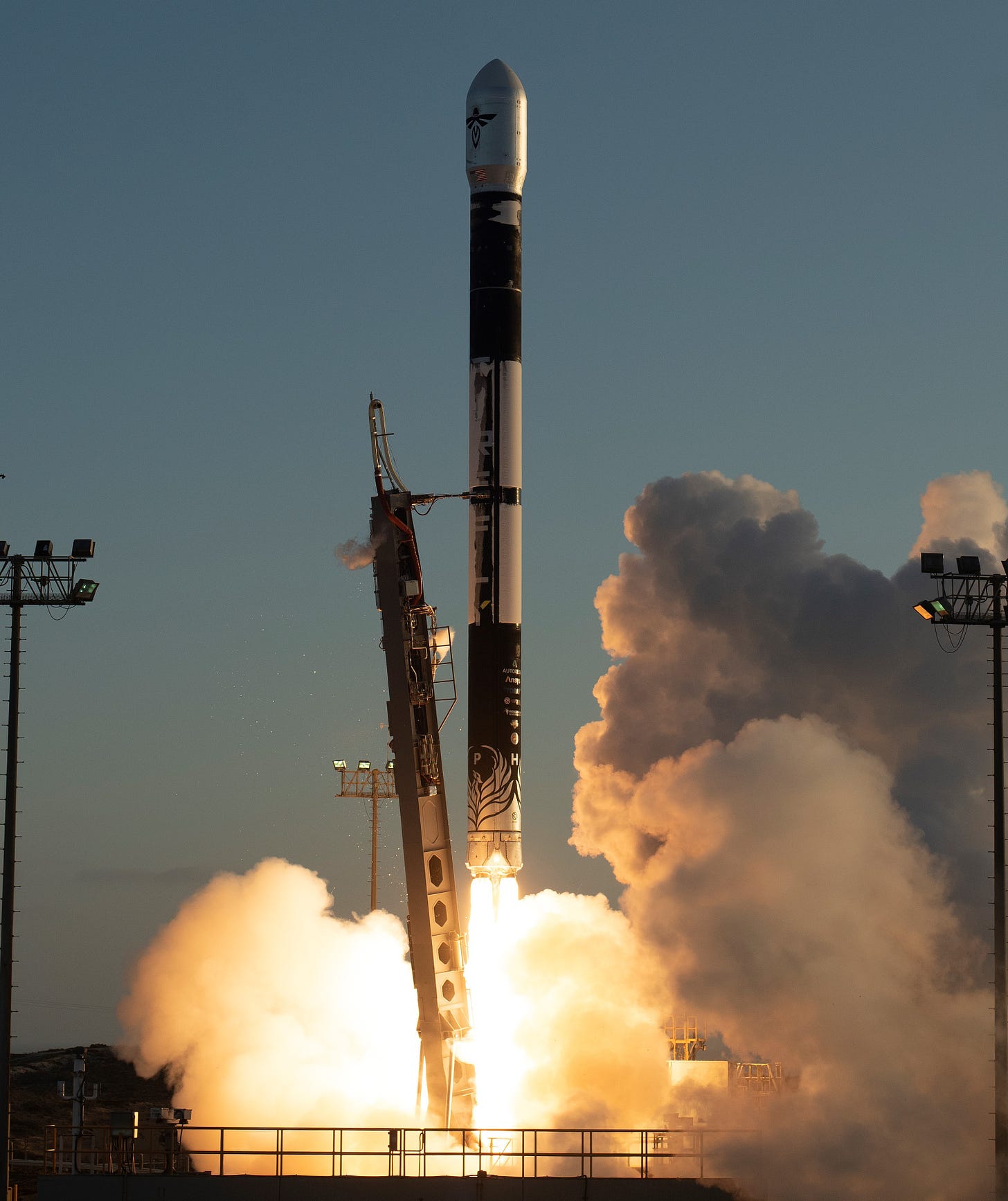Congratulations Firefly Aerospace!
Firefly Aerospace's ‘Alpha Flight 2: To The Black’ was successfully launched today.
The commercial space company Firefly‘s ‘Alpha Flight 2: To The Black’ was successfully launched from Vandenberg space force base this morning at one minute past midnight.
This was the second attempt. Alpha Flight 1 was launched last September, but didn’t manage to reach orbit because one of the four first-stage engines shut down prematurely. The rocket kept going on three engines and managed to reach supersonic, but then tumbled out of control. It was intentionally destroyed by an explosive flight termination system.
According to Firefly, the problem was an electrical issue. But on the bright side, the rocket generated useful data during its 2 1/2 minutes of flight.
This year Firefly attempted to launch Alpha Flight 2 on Sept. 11, but controllers halted the countdown a minute before schedule due to a drop in the supply of the helium that was used to pressurize the tanks. They ultimately scrubbed the launch.
Firefly then had to wait for the weather to get better before making a third attempt. On Sept. 30. The engines briefly ignited as the countdown reached zero, but the rocket went into “auto abort” at engine ignition.
Today Alpha launched smoothly and hit its marks as planned. The rocket’s two stages separated about 2.5 minutes after liftoff. The upper stage was inserted into an elliptical transfer orbit targeted to be 190 miles (300 kilometers) above Earth.
According to Tim Dodd of EverydayAstronaut.com , three payloads were deployed. All three payloads are tiny, each about the size of a loaf of bread.
Serenity, from the nonprofit organization Teachers in Space, was designed to collect a variety of data which will be shared with the educational community.
TechEdSat-15 (TES-15) is owned by NASA in coordination with San Jose State University in California. It features an “exo-brake” designed to help satellites leave their orbital perches more smoothly when their work is done.
Libre Space Foundation’s PicoBus will deploy 6 pico satellites into space to test the world’s first “fully free and open source telecommunications constellation.”
In November 2018 Firefly was selected by NASA for a Commercial Lunar Payload Services (CLPS) contract to “acquire end-to-end commercial payload services between the Earth and the lunar surface for NASA Headquarters’ Science, Human Exploration and Operations, and Space Technology Mission Directorates (SMD, HEOMD, and STMD).”
NASA also added Firefly to the VADR contract, “citing the need for a provider capable of launching payloads between 500 and 1,000 kilograms. “Firefly is the only launch vehicle provider in this grouping that has completed development and conducted its first test launch of their Alpha Launch Vehicle,” NASA stated in the procurement filing.”
Firefly hopes to be a player in the small-satellite launch industry that includes Rocket Lab , Virgin Orbit and SpaceX .
The more the merrier!
[Firefly Aerospace is based in Cedar Park, Texas]





